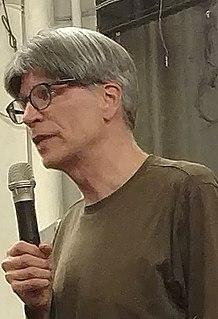A Quote by Frederick Lenz
Sometimes we can't do anything about our social condition, but we can do something about our condition of light.
Related Quotes
On the other hand, whatever condition we are in, we must always do what we want to do ,and if we want to go on a journey, then we must do so and not worry about our condition, even if it's the worst possible condition, because, if it is, we're finished anyway, whether we go on the journey or not, and it's better to die having made the journey we've been longing for than to be stifled by our longing.
I don't wish to defend everything that has been done in the name of Utopia. But I think many of the attacks misconceive its nature and function. As I have tried to suggest, utopia is not mainly about providing detailed blueprints for social reconstruction. Its concern with ends is about making us think about possible worlds. It is about inventing and imagining worlds for our contemplation and delight. It opens up our minds to the possibilities of the human condition.
The longer I live the more I am convinced that neither age nor circumstance needs to deprive us of energy and vitality. We are at last awakening to the close relationship between religion and health. . . .our physical condition is determined very largely by our emotional condition, and our emotional life is profoundly regulated by our thought life.
Political philosophy is realistically utopian when it extends what are ordinarily thought to be the limits of practicable political possibility and, in so doing, reconciles us to our political and social condition. Our hope for the future of our society rests on the belief that the social world allows a reasonably just Society of Peoples.
If we will admit time into our thoughts at all, the mythologies, those vestiges of ancient poems, wrecks of poems, so to speak, the world's inheritance,... these are the materials and hints for a history of the rise and progress of the race; how, from the condition of ants, it arrived at the condition of men, and arts were gradually invented. Let a thousand surmises shed some light on this story.


































